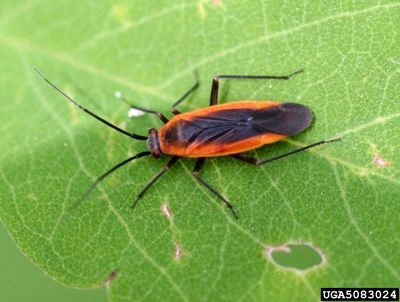What are Phlox Bugs?
A phlox that is speckled and has curling leaves may be a victim of garden phlox bugs. These are actually quite pretty insects, but their feeding habits can diminish the health of your plant. There are many potential bugs on phlox, but this particular pest targets only wild and cultivated species. The pests are fast moving, live under the leaves, and can be hard to spot. Spend some time with your sick phlox and if you see one of these insects, use this info to kill phlox bugs. Get down eye level with your phlox and stay still for several minutes. The phlox bug will bolt at any movement, so patience is a must. Soon you will see a striking orange bug with purple wings. The bug hides under the plant’s leaves and rapidly moves from leaf to leaf as it feeds, pulling out plant juices which can seriously debilitate the phlox. The tiny insect is under ¼ inch (6 mm.) long. Among the many potential bugs on phlox, this one (along with spider mites) is probably the most damaging.
Damage from Phlox Plant Bugs
If you live in the eastern U.S. through the Midwest, you are likely to have phlox bugs. The first signs of feeding from the insect are white or light green spots on the leaves. These lead to more severe spotting and occur on the stems as well. As the feeding sucks the juices out of the foliage, it will curl on the ends, turn brown, die, and fall off. The overall vigor of the plant will suffer as the foliage is reduced and the plant can’t feed itself adequately. If overrun, or in poor health in the first place, phlox bug feeding could kill the plant. The insect has two generations per season and overwinters in the egg stage on leaves.
How to Kill Phlox Bugs
Cleaning up at the end of the season is a good way to minimize the bugs the next year. This includes plant debris from neighboring plants. Destroy any plant material that may have eggs. Cut back and discard infested stems and leaves. Look for nymphs several times during the growing season. You can treat these with a horticultural soap or oil. Make sure to treat the undersides of the leaves where the insects hide. If the plant is in really bad shape and you are sure it is from phlox bugs, resort to chemical intervention. Use a selective insecticide to avoid killing beneficial insects.
